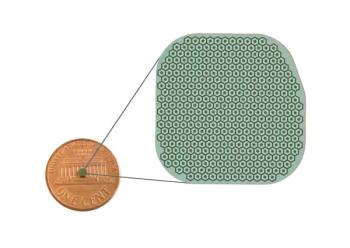
Optometry on fleek
I was sitting with my extended family demonstrating my multitasking skills (petting my dog, listening to my son tell stories to his grandparents, reading Facebook, and working on my blog), when I came across a delightful post about an OD’s experience with “teenspeak”-this is the language teens use to sound cool. One particular term was foreign to me: on fleek.
I was sitting with my extended family demonstrating my multitasking skills (petting my dog, listening to my son tell stories to his grandparents, reading Facebook, and working on my blog), when I came across a delightful post about an OD’s experience with “teenspeak”-this is the language teens use to sound cool. One particular term was foreign to me: on fleek. I turned to my 13-year-old son and asked what this phrase meant while at the same time Googling it because my brain simply could not wait for his answer and my fingers cannot do nothing for 20 seconds. He correctly responded with “on point” or “perfect,” his amazing eidetic memory impressing me yet again.
More from Dr. Swartz:
He said the kids said this frequently at school and insisted it was a word. This sparked an intense discussion of when a word is actually considered a word vs. just being a thing kids said. It occurred to me that if teenagers could make up a language to sound cool, so could I. “I,” meaning really cool optometrists. I thought this might be a great marketing campaign, and I started polling my extremely creative staff about our new marketing material.
If everyone started using these words in general conversation, the general public will surely find us irresistibly cool. Here are my suggestions.
20/20
In optometry: Perfect vision, according to Mr. Snellen
In the new world: Perfect; top notch; as good as it can be.
Example: “That shirt is 20/20. You should wear it the party.”
20/10
In optometry: Subtending far less arc than 20/20
In the new world: Better than perfect; above all expectations.
Example: “That movie was 20/10! We have to see it again. Tonight.”
More blogs:
Phoric
In optometry: The tendency for the eyes to deviate when fusion is broken.
In the new world: Starting to get crazy or out of control.
Example: “He got phoric about his girlfriend when she went out of town.”
Trope/troping
In optometry: The deviation of the eyes to the position of rest due to dissociation.
In the new world: Out of control due to dissociation.
Example: “He troped when she broke up with him.”
More blogs:
Alternately trope
In optometry: Alternate use of the deviating eye due to dissociation.
In the new world: Quickly changing emotional states due to dissociation, similar to bipolar disorder but not listed in the DMS IV.
Example: “The student was alternately troping when the teacher left the classroom.”
Prism
In optometry: A transparent body, often used as a bar or loose prisms, used to measure deviation of the eyes and/or move images.
In the new world: A new outlook, or a change in perspective.
Example: When your friend is complaining, you tell them, “Put a prism in it.”
Spectacally impaired
In optometry: When a person wears contacts and therefore refuses to buy back-up glasses.
In the new world: When a person cannot find something right in front of him. Applies even if no spectacles are worn.
Example: “She is spectacally impaired. She can’t find her way out of a paper bag.”
Cataracts
In optometry: an opacification of the crystalline lens.
In the new world: A band featured in Selena Gomez’s song, “Slow Down.”
Example: “It’s the Cataracts.”
Copay
In optometry: The amount a patient must pay before you see him, due before the exam, so I don’t have to send him to collections for nonpayment.
In the new world: When both parties pay on a date that was mildly entertaining.
Example: “I am glad my copay was only $20 because my food was cold. My date was OK, though.”
Deductible
In optometry: The amount insurance says the patient must pay before insurance picks up the bill, but that the patient does not understand and must argue with your office manager about for at least 15 minutes.
In the new world: The amount you pay on a date when you do not have an enjoyable time.
Example: “I met my deductible and bailed.”
Fogging
In optometry: An optical phenomenon used to prevent over-accommodation, and causes the patient to say, “It was clear, but then it got blurry.”
In the new world: Confusing the issue to the point when your parents forget why they wanted to ground you. This can also apply to superiors in the workplace.
Example: “When they found out I lied, I kept fogging them, and I got away with it.”
Topography
In optometry: Typically associated with corneal shape, and rarely reimbursed by insurance.
In the new world: The social scene with your peers.
Example: “Let’s check out the topography outside first.”
When I suggested this to my son, he was not amused. I am sure he will come around.
Newsletter
Want more insights like this? Subscribe to Optometry Times and get clinical pearls and practice tips delivered straight to your inbox.




























